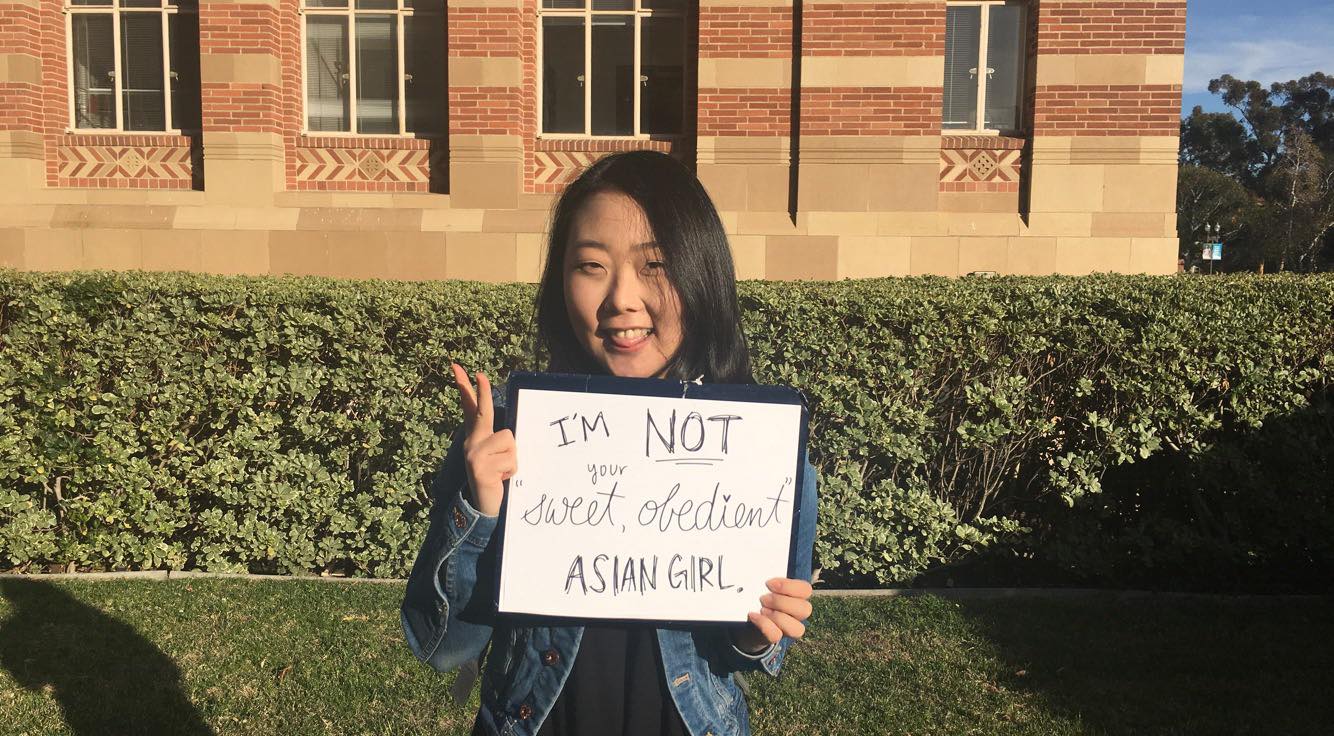Featured UCLA Feminist: Jeana Cho

Photo by Natalie Delpino
Jeana Cho is a third-year student majoring in communication studies and double minoring in film and Asian-American studies. Jeana is an intersectional feminist and advocate for the Asian-American community. She views feminism as a reflection of her growth.
“If you asked me when I was in ninth or tenth grade, I would have vehemently rejected that I was a feminist,” Jeana said. Jeana thought feminism was “man-hating” and women wanting to have more power than men. Later in high school she discovered feminism was about gender equality and began to identify as a feminist. Feminism to Jeana is her realization of her views regarding the ways people should treat each other and “represents like a maturation of [her] understanding of the world.” Jeana, however, felt a powerful turning point for her was when she entered UCLA and saw Constance Wu.
Constance Wu is a feminist who focuses on issues in the Asian-American community, as well as an actress on the TV show “Fresh Off the Boat”. Growing up, Jeana was taught to “smile and walk away,” when confronted with racism. When she saw Constance Wu speaking about everything she had felt growing up and speaking out against the racism she had been taught to let go with a smile, Jeana was inspired.
“I saw her speaking out against it and thought ‘Oh we’re allowed to do that!’” Jeana said. Afterwards, she decided to learn more about the Asian-American socio-political movement and to minor in Asian-American studies. “[Constance Wu] allowed me to realize what I wanted to do for the rest of my life…she shaped my life” she said when explaining why this moment was such a powerful turning point as a feminist.
Now Jeana feels she can confidently speak up when confronted with microaggressions like “Where are you really from?” or the use of racist stereotypes that strangers will attempt to apply to her. She has also become more vocal about Asian-American representation in media and whitewashing in Hollywood — issues that are very important to her as an Asian-American feminist and filmmaker. Through social media, Jeana shares news on cases of whitewashing and often shares articles in order to keep people updated and to educate people on the issue. She hopes to see more representation of people of color in film and television, as well as better representation.
There are too many “movies that are directed by White people relying on the stereotype” and tend to portray people of color as caricatures instead of multi-dimensional people. Jeana hopes to see more shows like “Fresh Off the Boat,” which is one of her favorites, because she is able to relate to the Asian-American characters. “It has stereotypes, but they use it in a relatable way for people who are Asian-American,” Jeana explained. She hopes to see more shows and movies that provide people of color with good representation because she strongly believes that representation in media “can shape people’s perception about each other and about one’s self.” Jeana is looking forward to “Crazy Rich Asian,” a film starring Constance Wu and an all-Asian cast and hopes to see more productions like it. And she believes that cases like “Hellboy” and Ed Skrein, in which the actor responded to the backlash of a White actor playing an Asian character by giving up the role, are signs that there is progress being made.
While Jeana believes there is progress being made in Hollywood, she is unsure if Hollywood is where she wants to go as an Asian-American filmmaker. “I’ve been on sets where the cast and crew are all White except for me, and like one other person. And I’ve also been on sets that are Asian-American” and while both are fun, there is a different satisfaction. The first time Jeana worked on a set that was an all Asian-American cast and crew, she knew that this was what she had imagined her life to be like: helping create “stories about Asian-Americans, for Asian-Americans, and by Asian-Americans.” This is much easier to do outside of Hollywood, where whitewashing and White feminism are common.
White feminists “want to empower women, but only when it comes to women who are White” and in the context of film, they are often women who present themselves as feminist while ignoring the struggles actress of color face in the industry and the way White privilege benefits their own careers. Jeana used Scarlett Johansson as an example, explaining that Johansson said she took the role because it was a strong female character. “She [says] she’s all for female empowerment, but then she decides to take roles from Asian-American women.” Feminism has to be intersectional, and Jeana hopes to see more intersectionality in the future.
“I have hope for [feminism]” Jeana continued. People like Emma Watson, who took the time to understand why people were calling her a white feminist and who owned up to her White privilege, makes Jeana feel like positive change is happening. There are people who do want to learn about intersectionality and how to see beyond their privilege. “I do have hopes, because without hope there won’t be any progress. I just continue to hold onto that hope,” Jeana concluded.




